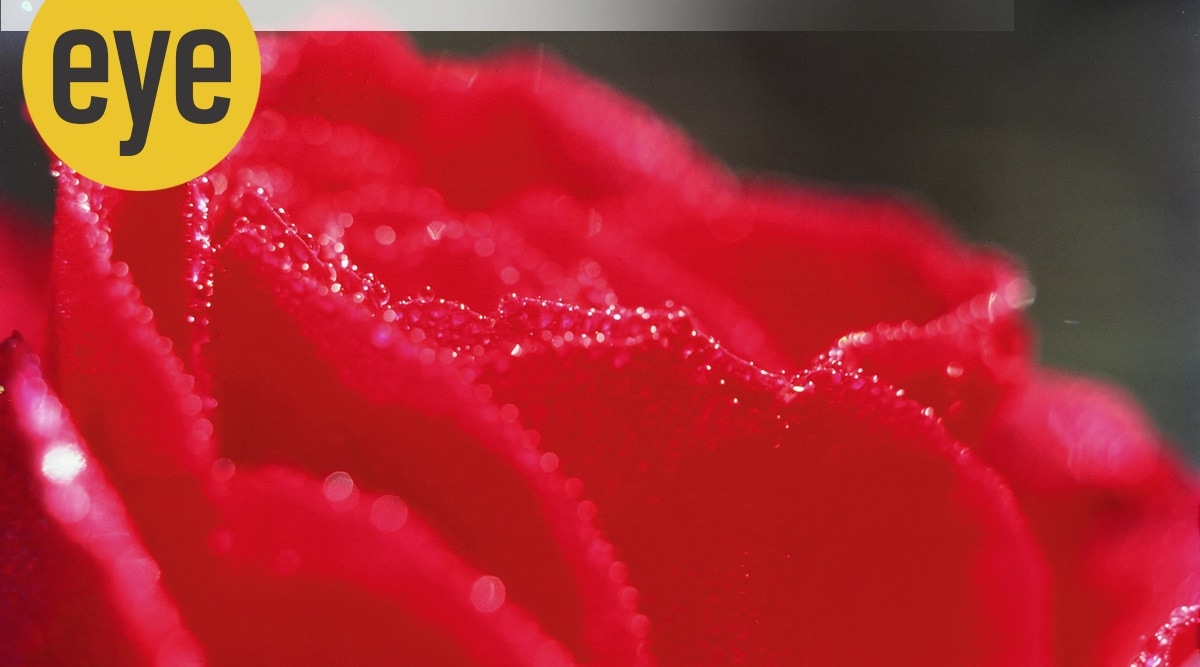 A rose by any other name would smell as sweet (Photo credit: Ranjit Lal)
A rose by any other name would smell as sweet (Photo credit: Ranjit Lal)Spiders dream, dogs shed tears, elephants grieve (and never forget), chimpanzees make tools, crows invent games and dolphins know who they are (and would probably take selfies if given smart-phones and have millions of followers on social media). The list of animals that we call “sentient” grows day by day. Even crocodiles shed tears, though granted they may be the same kind as politicians shed. And, very soon, I think the same is going to be discovered about plants. Already, there are people out there hugging trees and playing classical music (no hip-hop please) to their plants and swearing that when you rip a carrot out of the soil it screams (They do not).
Most plants get about life in super-slow motion and we don’t notice anything. Time-lapse photography has shown us the deadly python-like way creepers garrote other plants in search of absolute power and sunlight or the way seeds scatter far and wide. So if plants could feel and think what would be going through their minds? DiJ taps into the minds of a selection:
Crop plants, like wheat, rice and maize: We’re standing here, billions of us in this vast landscape, being stuffed with fast-food (they said it was super-food) and sprayed with foul-smelling stuff that is supposed to kill our natural predators but really only makes them stronger. In bygone days, when we were truly “wild” and didn’t have weird stuff done to our genes and hormones, we got by just fine. There were thousands of our kind. Now, they’ve whittled us down to just a few types. But that’s not all. As we sashay in the gentle breeze, our hearts lie heavy within us. We shall dry out, and turn to gold and then they’ll come after our billions and trillions of babies. They always had a thing for gold, these creatures who call themselves humans. Monster machines (deadlier than any bulldozer) called combine-harvesters will invade our fields, cut us down and shake out our babies from their cradles by the sack-full. And then they’ll be inhumanely crushed to death – into white powder – and eventually end up on someone’s plate as a phulka or parantha. Not a fate any parent would want for their children.
Vegetable plants like cauliflower, cabbage, brinjal, carrots and spinach: The grassy crop plants think they have an issue. Look at what happens to us! We’re ripped out by the roots, or our stems are ruthlessly hacked, leaves stripped and then, still fresh and in the prime of life, are plunged into boiling water, or sizzling oil or just dry roasted till some of us turn into bharta or gajar ka halwa. Curry leaves (curry patta) sound like a ladhi (a string of fireworks) going off when thrown into hot oil and the creatures smile and virtuously say “what a fragrance” while the leaves shrivel in agony. Even mustard seeds – the babies of those ethereal yellow mustard flowers, snap, crackle and pop?
Flowering and ornamental plants like roses: We roses are, of course, the aristocracy of the flowering world. Like human “royalty” and pedigreed dogs, we have been selectively bred from being wild, somewhat rambunctious creatures armed with terrible thorn-hooks, into sophisticated nobles, with proud bearing, heavenly perfumes and stunning colours. But yes, we have kept our thorns – we have the right to bear arms no matter whose fingers we lacerate or clothes we rip! We are offered to pretty girls by their callow suitors; you can buy bouquets of us at traffic lights; petals are thrown over visiting dignitaries, and we adorn the buttonholes of VIPs. We sacrifice ourselves and our great beauty so that humans can enjoy us, even if it’s just for a couple of days. Many of us, alas, are turned into “rose-water”, not a pleasant procedure as you can imagine.
Wild Flowers: They say people admire us as we sway in meadows in tune with the breezes and so on. (Poems have been composed about this: ‘I wandered lonely as a cloud blah, blah – look it up on Google.) So why do they then rip us out and stuff us into vases – often with types we can’t stand?
The Strangler Fig’s seed: Ah, that little birdie has just dropped me on this absolutely magnificent neem – many thanks! Time to get to work – yes it’ll be a pretty long-term project, but then Rome (and the strangler fig) was not built in a day. So, send roots down, wrap lovingly around the trunk of our kindly host, squeeze gently, then just squeeze and squeeze and suck up all the natural goodness of fresh sap. Hit the earth and send up supplies to the shoots that can now reach for the sun. All the while, our benevolent proprietor keeps us fed, even as we strangle the breath out of it. And then, that great day arrives, when our host crumbles to dust and we can stand on our own feet. And humans think they have the monopoly on this kind of behaviour!
Forest sapling generically speaking: Parents! Mom dropped me and my siblings – as tiny seeds – right below her and then just refused to let us grow up. She’s hogged all the food, water and sunlight; helicopter-parenting is one thing but this is something else. We can only hope she dies, or falls, or even is cut down. Ah, was that a rumble of thunder? The breeze is freshening, her leaves are rippling, her big limbs swaying, trunk creaking… Fall mom, fall – please just not on me!